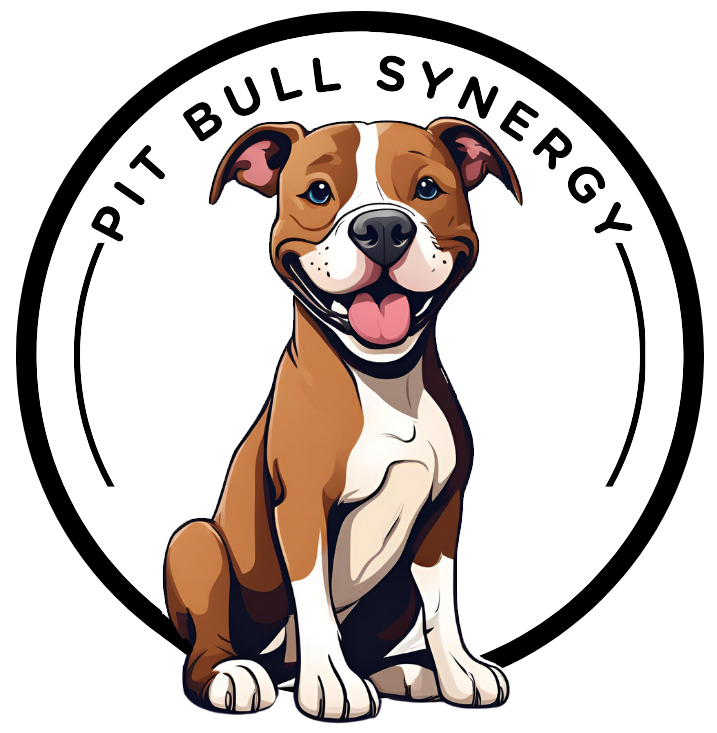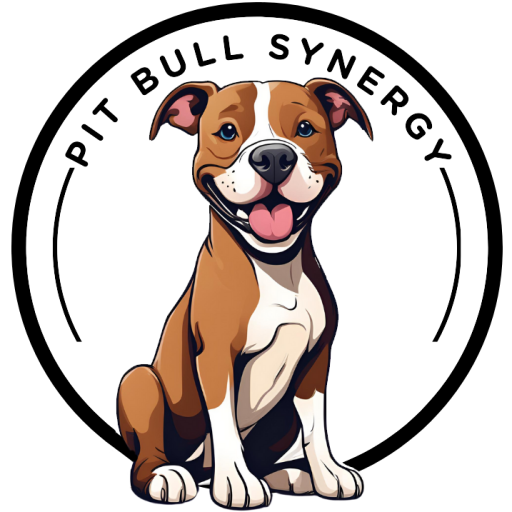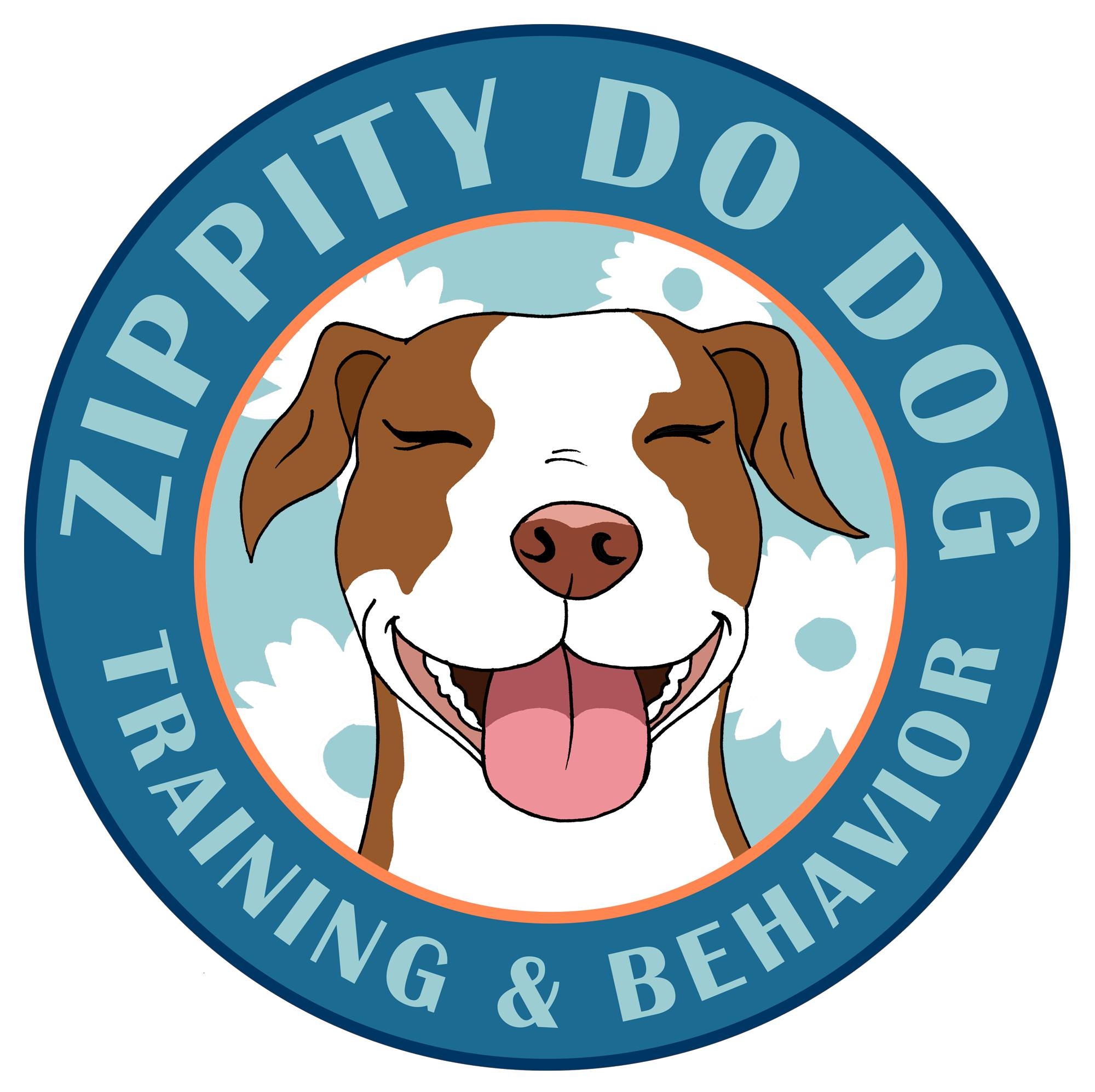menu
Positive Humane Training
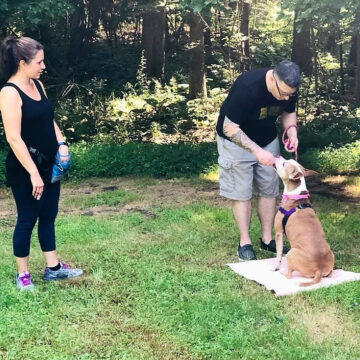
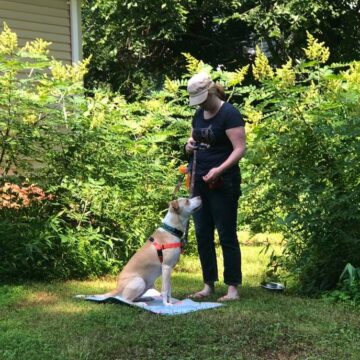
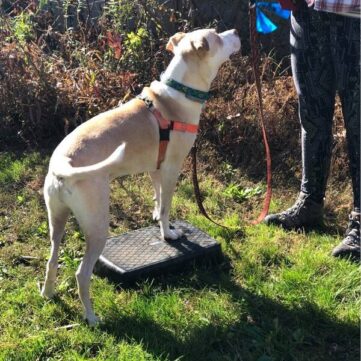
Positive Humane Training Methods and Practices
Pit Bull Synergy believes in the use of positive, and humane training methods only. Training practices based on an understanding of how dogs learn. We believe in reward-based training programs that focus on teaching dog owners’ positive methods for training their dogs. These training practices reduce the number of surrenders to shelters and rescues due to behavior challenges. It increases the bond between the owner and their pets. We believe in engaging the whole family, including adults and children, in dog training We believe in engaging the whole family, including adults and children, in dog training.
Choosing the Right Dog Trainer
If you search the internet for a dog trainer, you will find hundreds of options and different methodologies. These offerings range from group classes, individual 1:1 private lessons, popular board and train options, and everything in between. How will you know what is going to be the best fit for you and your dog? Below are some things to keep in mind when choosing a trainer.
First and Foremost
First and foremost, dog training is an unregulated industry. Yes, you read that right! Virtually anyone can call themselves a dog trainer, with little to no knowledge on appropriate training techniques and no actual formal education at all. This is sure to have lasting, and most often negative, effects on you and your dog’s future.
Secondly
Second, most people like guarantees, and often you will see dog trainers offering just that; a guarantee on results. There simply is no such thing when it comes to dog training. So how do you choose a trainer, and what should you be looking for? Start with reviewing a trainer’s credentials.
Many trainers have “lots of letters” after their name; quite often, all that means is that they could study for and pass a test offered by an independent testing body. Lots of people can pass a test. However, this alone does not make them qualified to train or to work
with a dog, particularly if that dog has training needs that exceed basic foundations skills like “sit,” “down,” “stay,” “come.” So, keeping in mind that dog training is an unregulated field and that credentials can mean little to no experience at all,how do you sift through the plethora of search results for “dog trainers near me?"
Think Positive
Start by looking for a dog trainer that is using positive and reward-based , ethical, and scientifically proven training approaches, according to the ethical guidelines and humane practices as defined by:
You can search out trainers in your locality through The Association of Professional Dog Trainers | APDT
The options listed above should narrow down your choices significantly. The next step is to begin the interviewing process. That’s right…you will need to interview your potential dog trainer. You can do this through direct questions and/or by doing your research. Watch out for terms such as “pack leader,” “alpha,” or “dominance.” Incidentally, your dog is not a wolf, and neither are you, so you don’t have a “pack.” Becoming an
“alpha” is not a positive thing, and your dog will never “plot” to take over your life through, “dominance.” In addition, listen and look for the use of descriptive words like “pushy.” “Rude,” “stubborn,” “needing rules,” or anything similar. These are human attributes. These are words used to describe the behavior of people; dogs do not possess moral imperative. Period. These negative labels are unfair to dogs and imply
anthropomorphism and antiquated thinking on the trainer who uses them. A qualified positive-based trainer will not use these adjectives in their
vocabulary.
Look for a dog trainer who participates in continuing education
Look for a dog trainer who participates in continuing education, which is often required to maintain whatever credentials they hold, and check those credentials, as in an unregulated field; you may find someone who isn't being truthful about their certifications. Conversely, it is crucial
to understand that many dog trainers are self-taught. Just because a dog trainer doesn’t have credentials doesn’t mean they can’t help you. Interviewing a trainer may give you a clearer understanding of a trainer’s methodology. You should scan their website and/or social media pages, such as their Facebook page. Look through the pictures and videos that they share, and if you see leather and nylon collars or harnesses
being used, chances are they are using reward-based training methods.
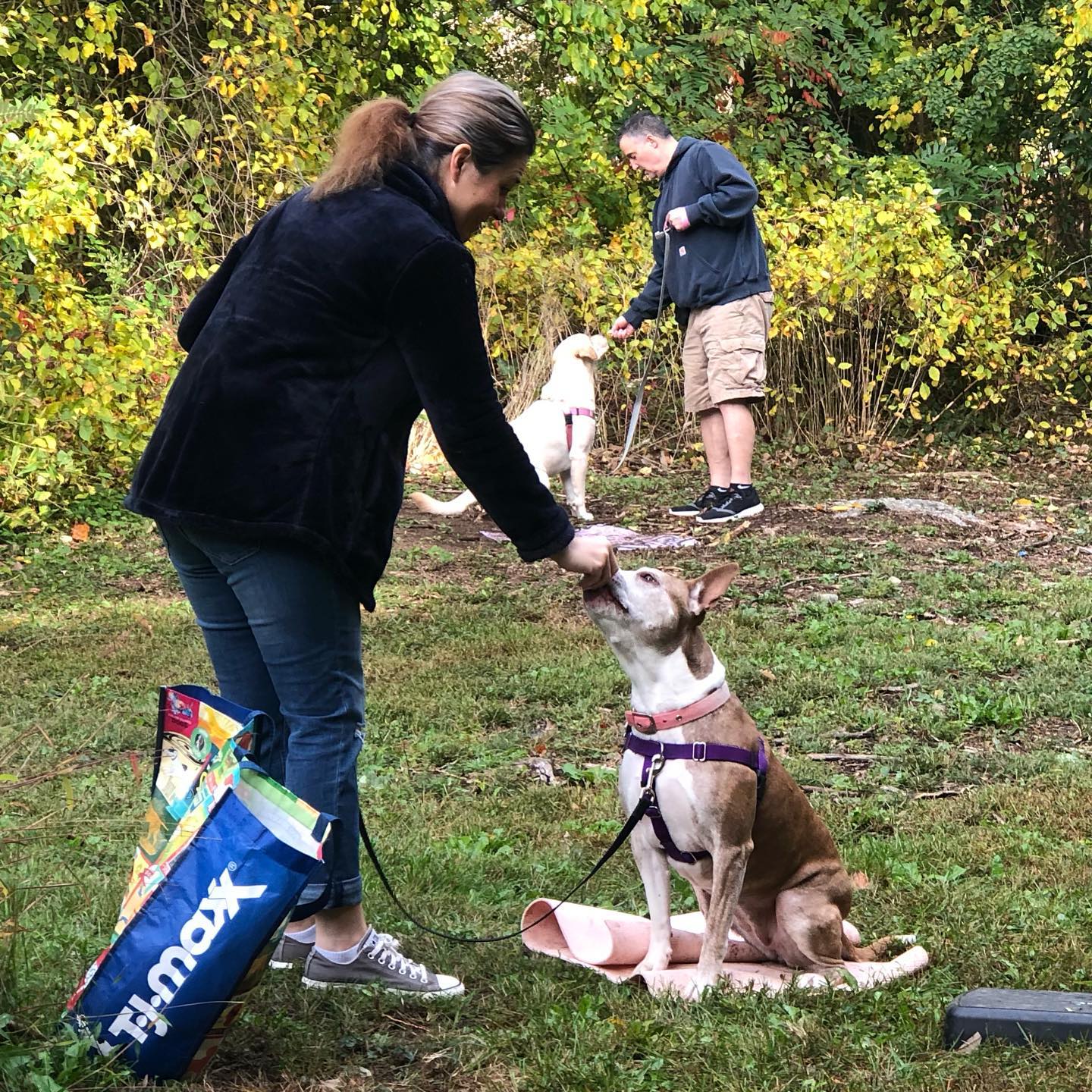
Group Training
Group dog training classes are not always the best option for every dog. If you have a afraid of other dogs, or a dog that becomes highly excited and aroused around other dogs, or a dog with a “stranger-danger,” the group class setting may be too difficult for your dog to tolerate, and will likely not result in a positive outcome for these dogs, as it often leaves a dog guardian frustrated and discouraged, not to mention the additional stress to your dog.
A good trainer will screen you, asking questions before enrolling you and your dog in a training class to help you figure out if the class setting is an appropriate one or not. Once you have considered whether group classes or private 1:1 training is the best option, then you can start asking your questions, beginning with “What will happen if my dog gets it wrong?” The answer should be nothing! If your dog doesn’t get it right, the absence of the click or marker word and treat is enough to tell them that they didn’t get it right; they should simply have the opportunity to try again.
Breed Discrimination
No Breed Needs Harsher Methods
You want to be looking for a trainer who will NOT be using aversive, punishment, or compulsion training techniques. Ever. Including the use of prong, choke, and shock collars (even if they are being used on a vibrate or tone setting), shaker cans, bean bags, spray bottles, ultra-sonic noisemakers, and canned air. None of these approaches teaches a dog anything except avoidance behavior and learned helplessness. These devices drive fear deeper, exacerbating bad behavior, and can significantly damage the relationship of trust between a dog and its guardian. A qualified trainer will recognize that teaching dogs what you want them to do instead of what you don’t want them to do, is always a more appropriate response to unwanted behavior. Dogs do what works, and any behavior that gets reinforced gets repeated. Again, think positive!
Your dog is a sentient being, and you are his advocate and protector. Your job is to keep them safe from harm and pain, and your trainer's job is to do the same. Resources Against the Use of Adversive Training Tools
